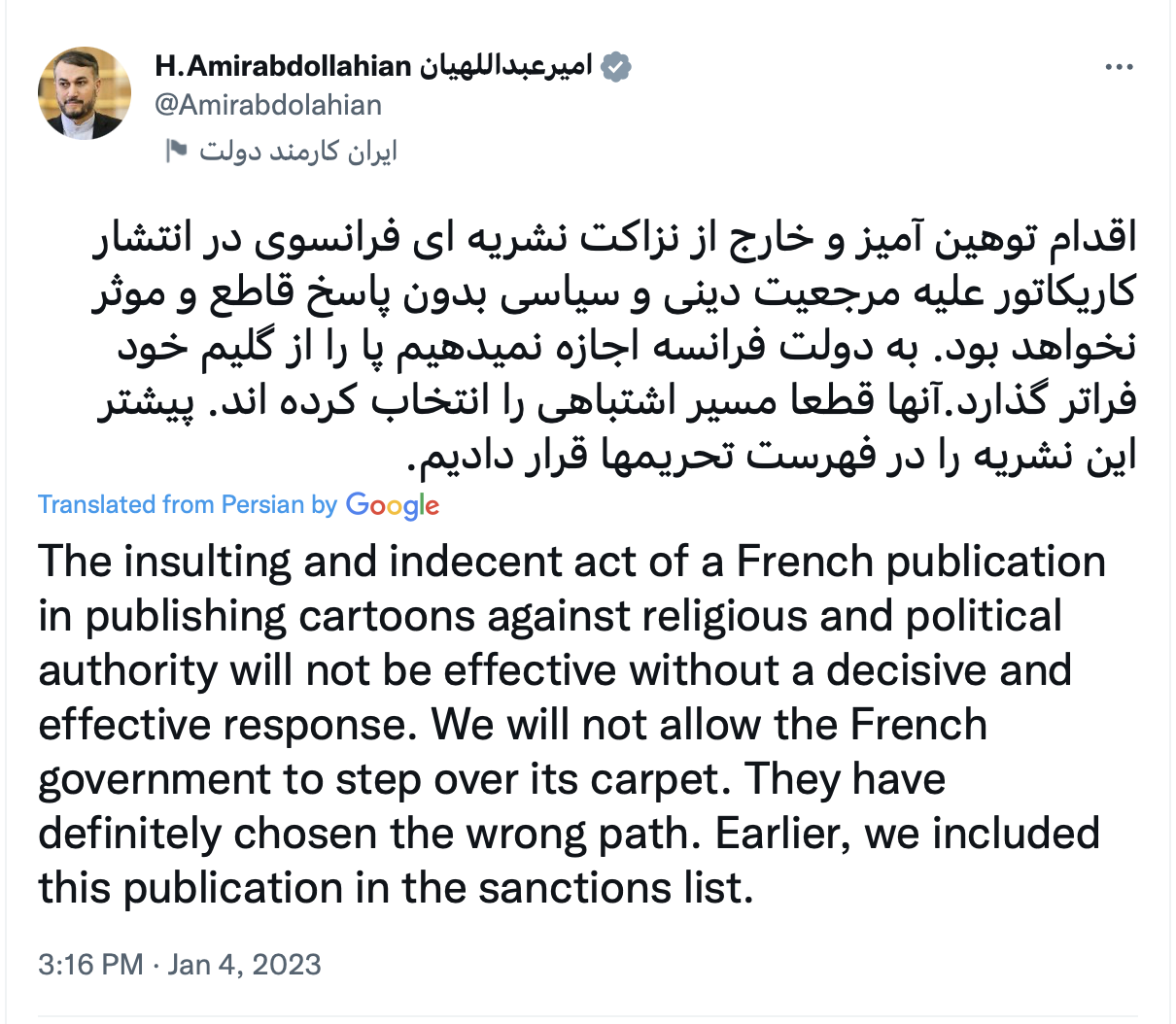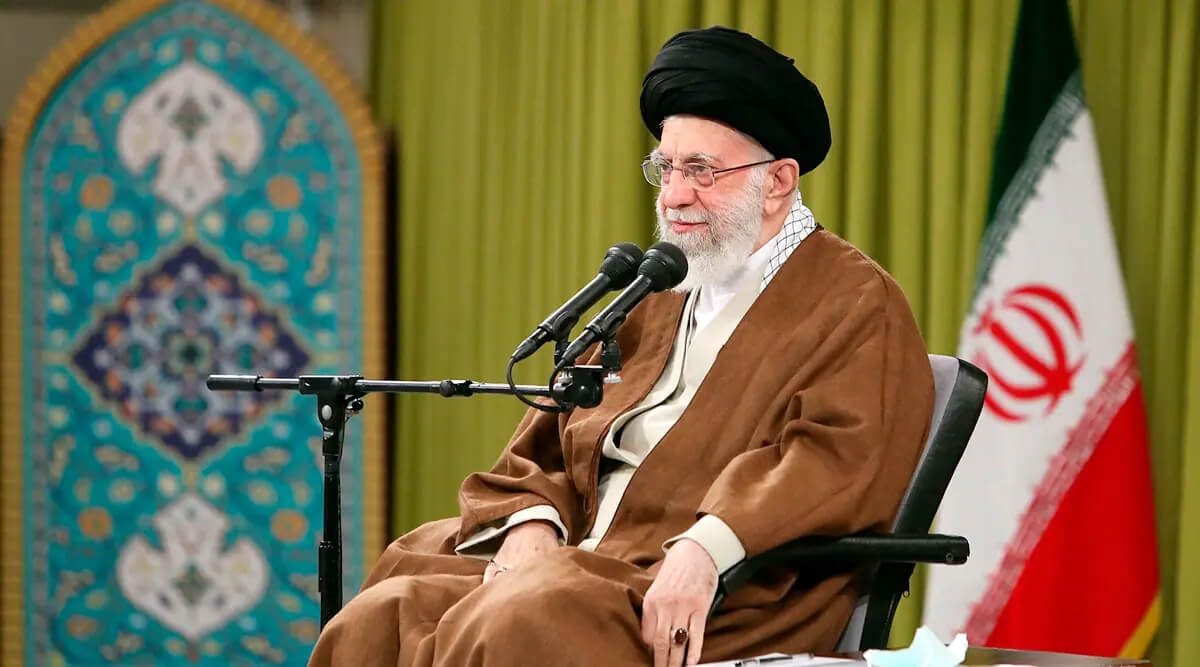Iran’s Foreign Ministry summoned France’s ambassador in Tehran, Nicolas Roche, on Wednesday, over a series of cartoons insulting Iranian Supreme Leader Ayatollah Ali Khamenei published by the French satirical magazine Charlie Hebdo.
Foreign Ministry spokesperson Nasser Kanaani filed a “strong protest” with Roche, saying that Iran rejects the insult to “Islamic as well as its national and religious values.”

He added that France could not justify Charlie Hebdo’s actions under the garb of freedom of speech, particularly given the publication’s history of insulting Islam and the Holy Quran. To this end, Kanaani said Tehran holds Paris responsible for the “disgusting, sacrilegious, and unjustified moves.”
The Iranian official further stressed that Tehran has the “right to give an appropriate response” and was awaiting an explanation of any action taken by the French government.
WHAT CAUSED THE DIPLOMATIC SPAT
On 8 December, French magazine Charlie Hebdo announced a competition called “#MullahsGetOut,” calling for caricatures of Iran’s leader Khamenei who they referred to as a “symbol of backward-looking, narrow-minded, intolerant religious power.”
The competition was held against the backdrop of the Iranian women’s protests that were launched in September after Mahsa Amini, an Iranian Kurd, died in custody after being arrested for violating the country’s dress code. Iranian security forces have reportedly killed over 500 protesters since nationwide demonstrations began immediately following Amini’s death.
To this end, the publication called on the submissions to support the protests by “ridiculing” Khamenei and “consigning him to historical oblivion.”
Tehran warned France on Wednesday it would respond after "insulting" cartoons depicting Iran's supreme leader Ayatollah Ali Khamenei were published in the satirical magazine Charlie Hebdo (@Charlie_Hebdo_) pic.twitter.com/BpVJGSimqZ
— Kayhan Life (@KayhanLife) January 4, 2023
Subsequently, Charlie Hebdo released its “selection of winners” on Wednesday, publishing the “funniest and meanest caricature of Ali Khamenei” amid over 300 submissions. The images included Khamenei being stoned by naked women and hung by unveiled women’s hair.
FRANCE’S RESPONSE
Roche reassured that he would communicate Iran’s concerns to the relevant French officials.
Meanwhile, French Member of the European Parliament and President Emmanuel Macron’s former aide, Nathalie Loiseau, called Iran’s move an “interference attempt and threat” to the satirical publication. She added, “Let it be perfectly clear, the repressive and theocratic regime in Tehran has nothing to teach France.”
Le numéro de la semaine est à retrouver chez votre marchand de journaux ou sur https://t.co/5SPrx5RObP ! pic.twitter.com/zdhEXXzVy5
— Charlie Hebdo (@Charlie_Hebdo_) January 4, 2023
2015 ATTACK ON CHARLIE HEBDO
Interestingly, Charlie Hebdo published the cartoons in the same week as the eighth anniversary of a gruesome attack on its Parisian newsroom. On 7 January 2015, brothers Chérif and Said Kouachi, armed with assault rifles, submachine guns, grenades, and pistols, stormed the Charlie Hebdo offices in Paris, killing 12 people, including some of France’s most revered cartoonists and other editorial staff, and injuring a dozen more. The attackers reportedly shouted that they had “avenged the Prophet” as they left the scene.
While some critics in France believe that the magazine is unnecessarily provocative, it gained nationwide support following the deadly attack.
As the trial for the assailants began in September 2020, the publication decided to reprint the caricatures of Prophet Mohammed that had sparked the attack, causing a series of protests worldwide.

